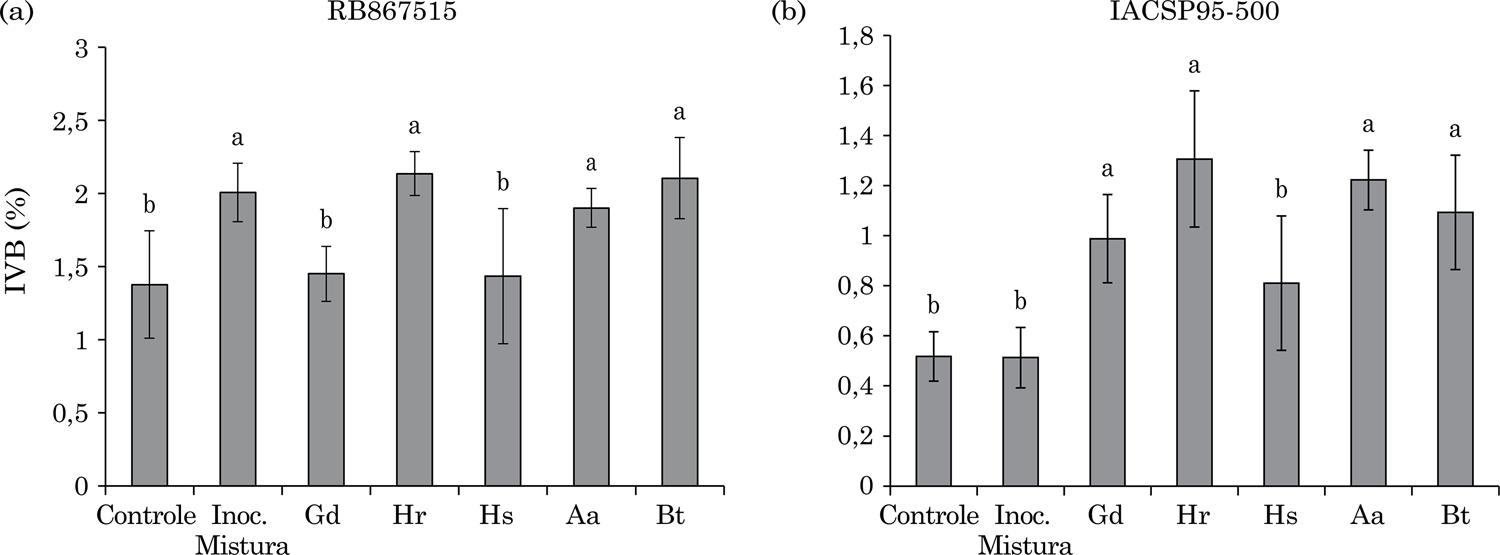ABSTRACT
Sugarcane is one of the most important crops in the economy due to production of sugar, ethanol, and energy. Technologies are necessary to improve its yield and quality with minimum damage to the environment. We evaluated the indole acetic acid production and germination in the sugarcane varieties RB867515 and IACSP95-5000 after inoculation with five strains of diazotrophic bacteria. The production of indole acetic acid was assayed through the colorimetric method using the Salkowski reagent. To evaluate germination, an experiment was conducted in a greenhouse using a randomized block experimental design with four replications and seven treatments: uninoculated control; mixed inoculation with the five strains; and individual inoculation with Gluconacetobacter diazotrophicus (Gd) estirpe BR11281T (PAL-5T), Herbaspirillum seropedicae (Hs - BR11335 = HRC54), Herbaspirillum rubrisubalbicans (Hr - BR11504 = HCC103), Burkholderia tropica (Bt - BR11366T = PPe 8 T) e Azospirillum amazonense (Aa - BR11145 = CBAMc). The most efficient bacteria for production of indol acetic acid were Hs and Hr, and production declined after 48 h of growth. Hr, Aa, and Bt also improved the germination speed index and number of stalks sprouted in both varieties. Furthermore, in the var. RB867515, germination speed was positively affected by the mixed inoculation, and the same effect was observed from Gd in the var. IACSP95-5000.
Saccharum sp.; inoculum; growth promotion




